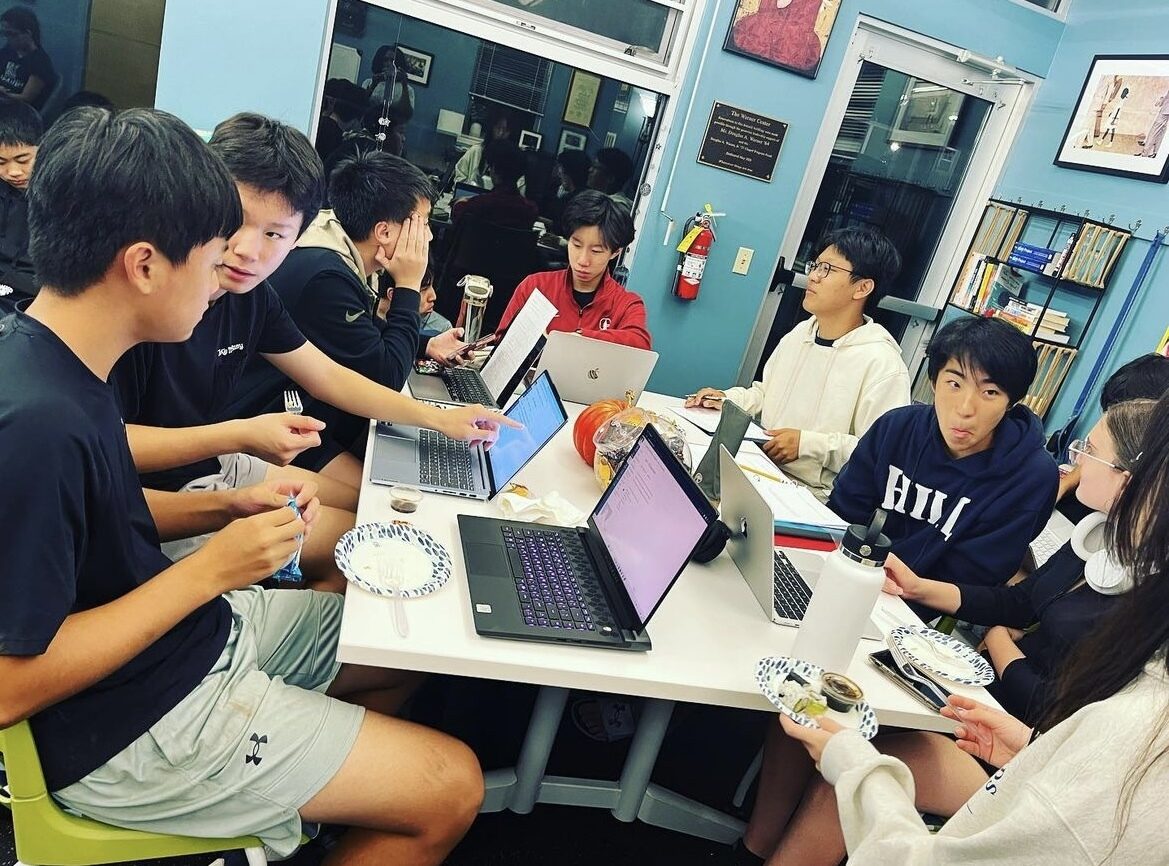Being away from home at such a young age takes a toll on many students. They face countless difficulties such as missing out on culture, friendships, and other home traditions. The Diversity, Equity, and Inclusion team at Hill has added additional programming to help ease this discomfort for students. The new affinity group study halls cater to students who need help finding their community at Hill. During the study hall time, people of similar backgrounds are able to join together to provide welcoming and supportive communities within Hill.
“In the middle of a meeting discussing possible BIPOC family nights, Laura McConney, Dean of Residential Life, suggested hosting affinity study halls in the Warner Center,” The Reverend Khristi Adams, Dean of Spiritual Life and Equity remarked. “I loved this idea as we were trying to find a way to invite more students to this space during study hours,” she added.
The Warner Center, which stands at the edge of Dutch Village, serves as an enjoyable campus destination for all students. At 7:30 pm on Monday nights, members of a certain group, for instance, WOCA (Women of Color Association) and HASOGI (Hill’s Advocates for Sexual Orientation and Gender Identity) are invited to gather their books and study.
Coordinating these study halls was not easy, as other previously scheduled events posed restrictions on their timing. “The Warner Center was already planning on being open for students during study halls on Wednesdays and Thursdays. We originally had Fridays being included in the schedule, but it didn’t make sense to have study hall then. We added Monday as our group focused study hall night instead,” Adams explained.
Affinity groups that are not religion-based are allocated the entire two-hour study hall period on Mondays, while the Spiritual Life Committee at Hill meets every Wednesday to host study halls for religious faiths and Spiritual Reflection following the study hall.
Since Adams’ arrival to Hill in 2018, and possibly even before then, there has not been dedicated affinity study halls. “There was no official place to host DEI programs and events, so it is unlikely this happened before,” Adams noted. Despite these study halls being new to all current Hill students, they have received a great turnout over the course of the fall midterm.
Providing a safe space to chat and do homework during a time usually spent alone, these optional gatherings are a great place for students to connect with other students who share a similar identity.
Nicole Kalu ’26, a fourth former who attended the Women of Color Association study hall, regarded her experience as a “comforting space to simply chat and do homework.” On that night, some students were present simply for the conversations, while others sought new connections through homework help.
Socials and other similar gatherings have also been planned to foster these new relationships. DEI hopes that with this new programming together with the more familiar events, Hill students searching for a sense of belonging will find comfort in a group of students who identify similarly to themselves.
























